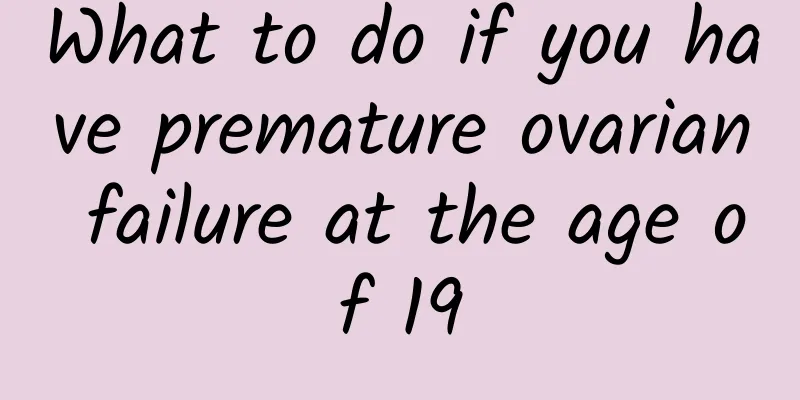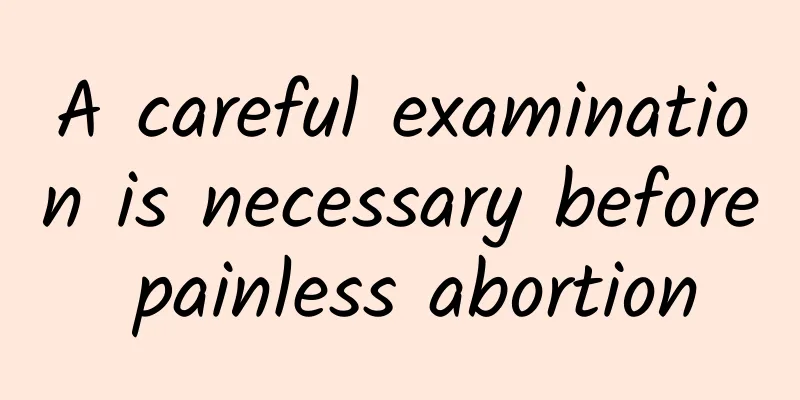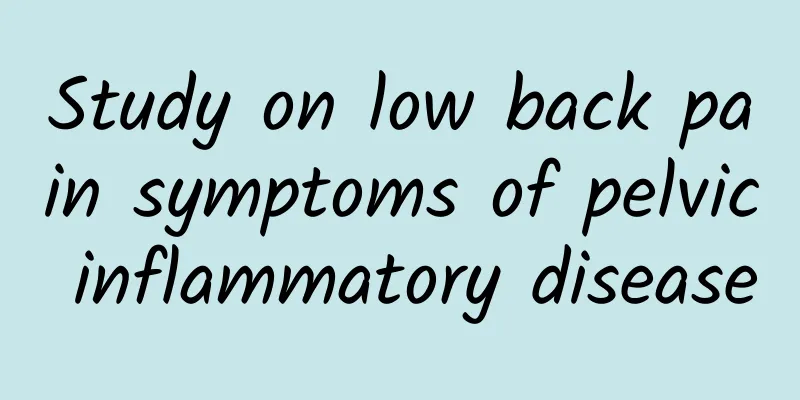What to do if you have premature ovarian failure at the age of 19

|
What should I do if I have premature ovarian failure at the age of 19? Premature ovarian failure refers to amenorrhea before the age of 40 due to ovarian failure. It is characterized by primary or secondary amenorrhea accompanied by increased blood gonadotropin levels and decreased estrogen levels, and a series of low estrogen symptoms of varying degrees, such as hot flashes, sweating, facial flushing, low libido, etc. The average natural menopause age for women is 50 to 52 years old. There are differences in the age of menopause in race and region, but the absolute values are not much different. Amenorrhea is divided into primary amenorrhea and secondary amenorrhea. Secondary amenorrhea occurs before the age of 40. Through the investigation of a large sample of POF patients, it was found that there were no characteristic signs of abnormal menstruation before amenorrhea. Some people suddenly become amenorrhea after regular menstruation, some people stop taking birth control pills or give birth, and some people show menstrual cycle and menstrual disorders before amenorrhea. Some infertile patients are found to have premature ovarian failure due to infertility. Infertility is the main reason for patients with premature ovarian failure to seek medical treatment and distress. There are primary infertility and secondary infertility. It is recommended that those with a family history of premature ovarian failure plan pregnancy as soon as possible. Manifestations of autoimmune diseases such as Addison's disease, thyroid disease, diabetes, lupus erythematosus, rheumatoid arthritis, vitiligo and Crohn's disease. There are also hidden symptoms of adrenal insufficiency, such as recent weight loss, loss of appetite, unclear abdominal pain, weakness, increased skin pigmentation, salt addiction, etc. Estrogen-progesterone replacement therapy is very important for young POF patients, namely, relieving low estrogen symptoms and urogenital tract atrophy, preventing long-term complications, and reducing the risk of colon cancer by 37%; preventing osteoporosis; ovulation induction therapy; immunotherapy; embryo transfer; ovarian transplantation. Premature ovarian failure is generally difficult to cure, and usually adopts a sequential combination of estrogen and progesterone. Estrogen and progesterone can be used to establish an artificial cycle, and Chinese medicine can also be used to regulate treatment. |
<<: How to regulate irregular menstruation
>>: What is the cause of left ovarian cysts and who are the susceptible groups?
Recommend
What details should be paid attention to in the care of cervicitis
One of the most common gynecological diseases is ...
What are the factors that cause vaginitis?
Vaginitis is a common gynecological disease among...
What should I do if I have ovarian cysts during pregnancy? What are the symptoms?
Patients with ovarian cysts are often found durin...
Is cervical cyst a uterine fibroid?
Is cervical nabothian cyst a uterine fibroid? Cer...
Do you know about the ultrasound diagnosis of acute adnexitis?
Adnexitis is a common gynecological disease. In l...
What are the symptoms of candidal vaginitis?
Candida vaginitis is also a type of vaginitis. Pe...
Black coffee is used by A-mei and Nicky Wu to lose weight
Wanting to lose weight but too lazy to exercise, ...
How to choose a regular hospital for endometrial tuberculosis
Endometrial tuberculosis is a sexually transmitte...
To prevent dysmenorrhea, we must take good measures
Dysmenorrhea is a phenomenon that most women will...
Detailed analysis of the four major symptoms of vulvar leukoplakia
In recent times, there are more and more patients...
The latest 1:1 anti-aging walking method to prevent brain degeneration
Do you have any of the following situations? &quo...
How long does it take to restore menstruation after hysteroscopic surgery for endometrial polyps
After hysteroscopic surgery for endometrial polyp...
Do you feel hungry and have an increased appetite easily when it’s cold? A female Chinese medicine doctor teaches you 5 tricks to easily defeat the glutton without gaining weight
Is your stomach growling again? As winter comes a...
What are the specific dangers of candidal vaginitis?
Many people do not know what candidal vaginitis i...
What is the cause of uremia?
What is the cause of uremia? The causes of uremia...









